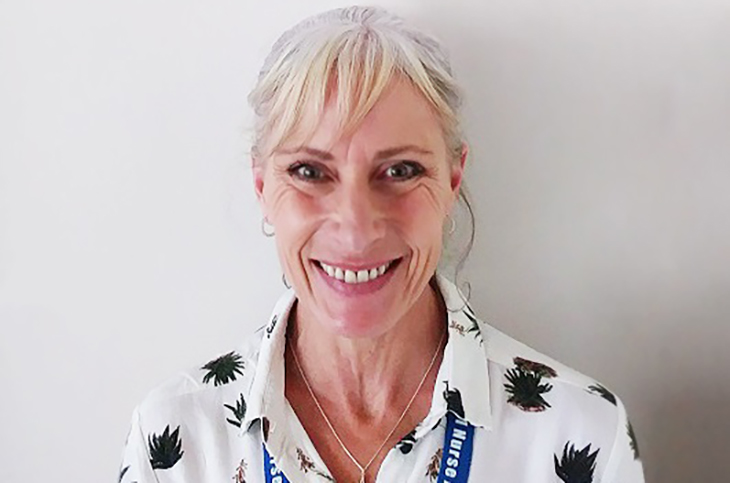Michelle Bridger is a Professional Nurse Advocate delivering restorative supervision to colleagues in nursing and beyond.

The Professional Nurse Advocate Programme was set up in March 2021, towards the end of the third wave of COVID-19. This was the start of a critical point of recovery: for patients, for services and for our workforce. Michelle tells us how she got into the role and what being a Professional Nurse Advocate means to her.
“I started nursing when I was 25 – in a nursing home doing nights. I really loved it actually, but wanted to take it a little bit further so I became an HCA. From there I was seconded to do my nurse training. When I was a student, I did a community placement and I just knew that was the place I wanted to go. I just felt really connected with working in the community.
“During the second wave of COVID-19 in 2021, I really noticed that lots of my colleagues were struggling mentally with the pressure and stress of it all. I didn’t know what to do to help. I wanted to support them and to be able to say the right thing, but I didn’t know how to do that. When I heard about professional nurse advocate training, I knew I wanted to take part. I qualified in September 2021.
“Professional nurse advocates deliver restorative clinical supervision in 1:1’s or to groups of people. It uses the A-EQUIP model which is ‘Advocating for Education and Quality Improvement’. We look at reflecting, summarising, and at the formative side of things which is the education and quality improvement side. It also encourages nurses to advocate for themselves. I’m there to listen, to help staff to be solution-focused and to advocate for themselves moving forward. It’s looking after the wellbeing of staff, listening and helping people to feel valued, as well as to learn from their experiences.
“I’ve been doing this for 11 months. 217 nurses have had two group sessions and 72 nurses have had 1:1’s. I’ve also done restorative supervision with teams in bladder and bowel, frailty and some of our admin staff. Admin staff are part of our team as well and need a safe space to offload too.
“Staff engagement is my biggest challenge and is always at the top of my list. Staff on wards or in the community don’t have access to their emails all the time. They don’t always see the invites or get the updates on what I’m doing or the benefits of it. I spend a lot of time visiting different sites and telling people that I’m here – people engage with that a lot better than they do with an email.
“The second challenge has been raising the profile of the Professional Nurse Advocate role. I was in the second cohort for the training and at the time was the only person within the trust who had done it.
“I am passionate about restorative supervision because I care about my colleagues. I really care about them and I don’t like to see anyone struggling. Especially when it’s not necessary. We talk about making nurses resilient, but they are already so resilient. There’s only so much resilience a person can have before they hit a wall and they can’t do anymore.
“It’s so important that people look after themselves. You can’t give the best of yourself to others if you don’t look after yourself first.”
